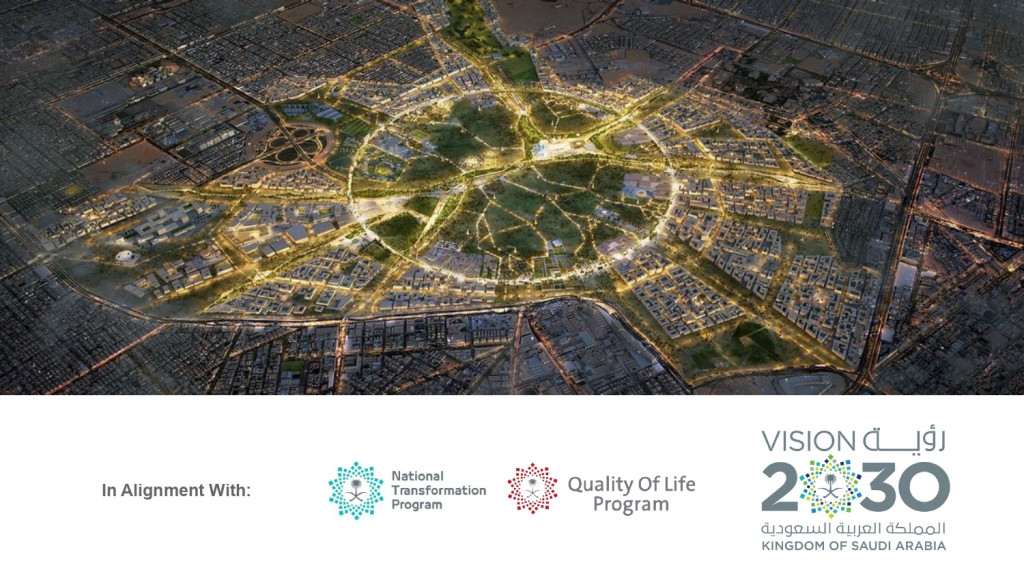Riyadh, capital of Saudi Arabia and the largest city in the Arabian Peninsula had a population of 6.5 million people in 2016 which is set to increase to over 8.3 million by 2020 due to its rapid urban and economic growth. Also Riyadh has extreme climate, the average high temperature in August is around 43.6 °C (110.5 °F). Due to abundance of natural resources notably crude oil, transportation fuels like gasoline, diesel and jet fuel are cheap. Consequently car ownership has increased and infrastructure for private vehicles- expressways, multi-lane artery roads has been developed. This has resulted in increased dependency on finite fossil fuels. In Riyadh, car commuters waste on an average 23min daily in traffic congestion leading to tremendous wastage of resources. Walkable Riyadh: Mindset shift is a project intended to ensure resilient future of Riyadh in terms of energy and elevate quality of urban life of residents and visitors by increasing Riyadh’s walkability and permeability.
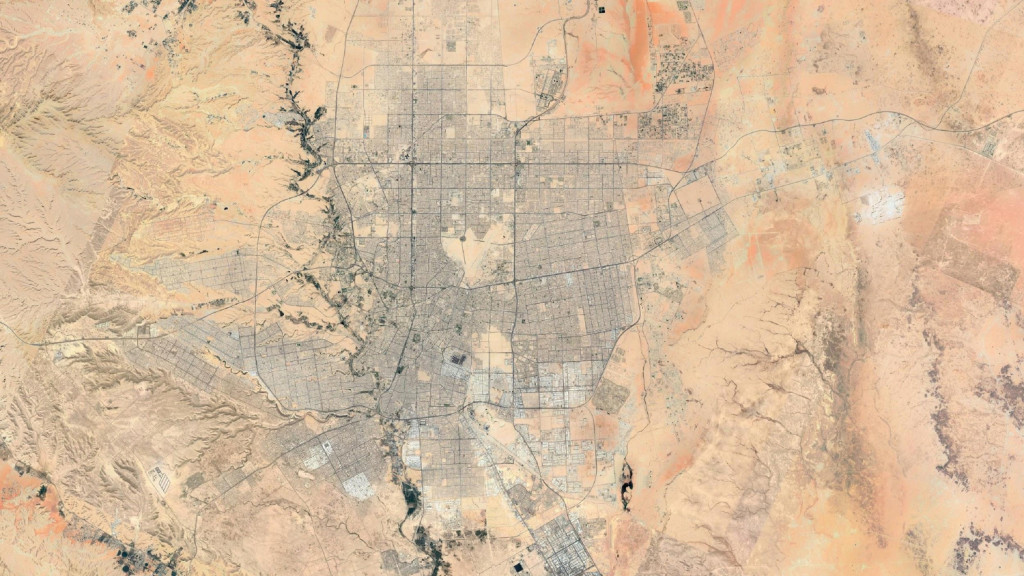 Riyadh : Satellite image
Riyadh : Satellite image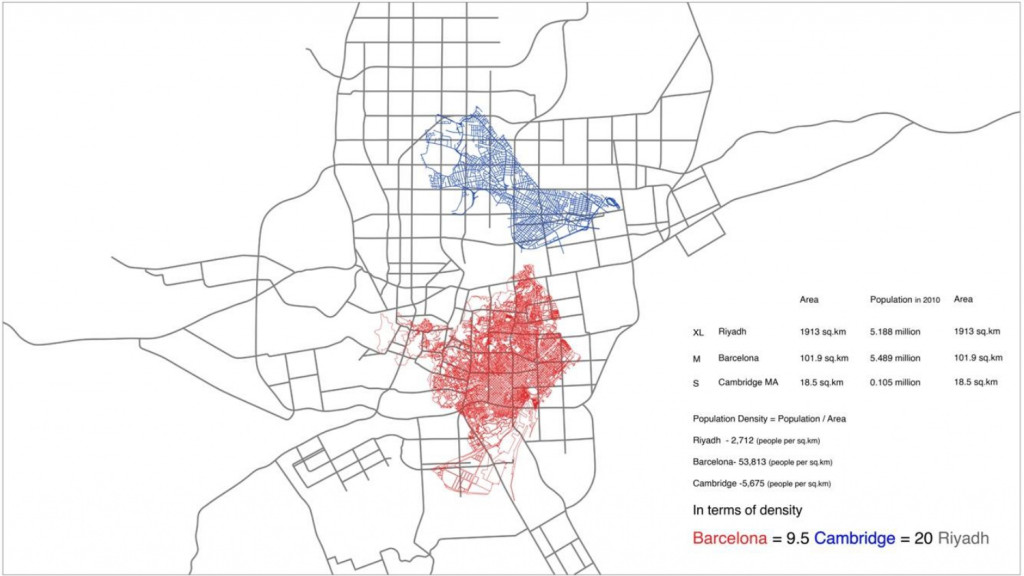 Comparative analysis
Comparative analysis 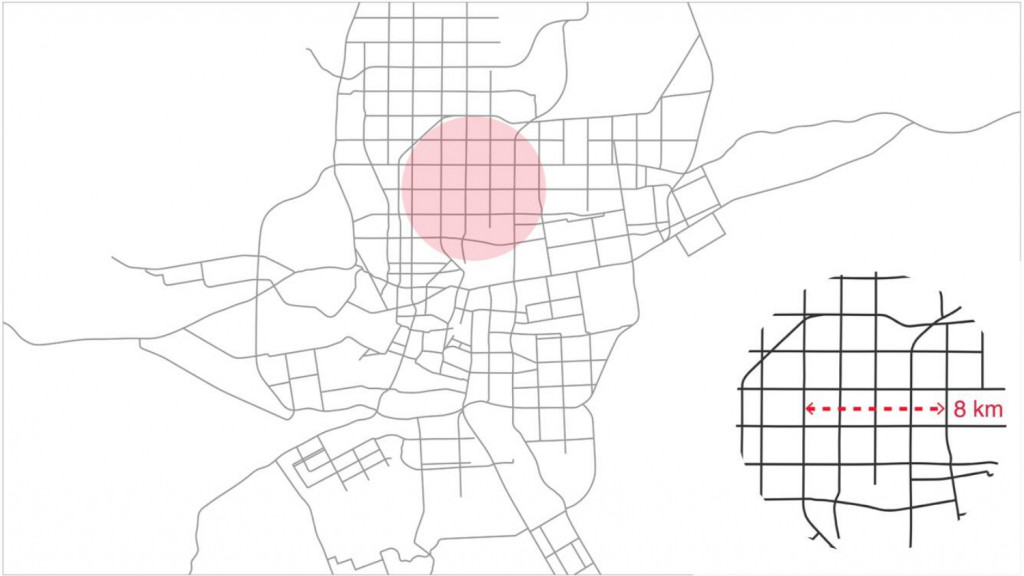 Riyadh : Road Network
Riyadh : Road Network 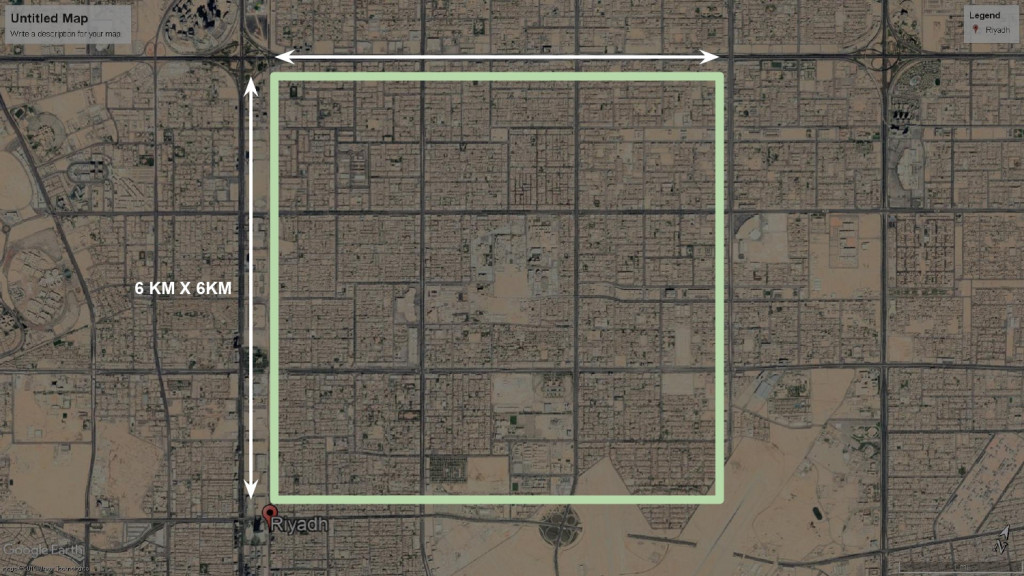 Scope of proposal
Scope of proposal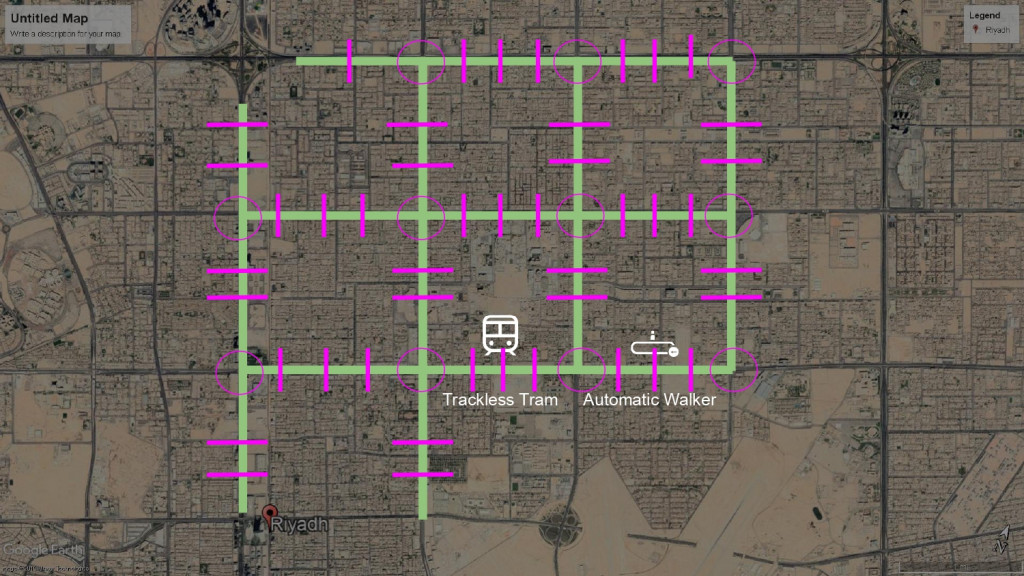 Proposed modes of transport are intended to increase permeability of pedestrians across neighborhoods
Proposed modes of transport are intended to increase permeability of pedestrians across neighborhoods 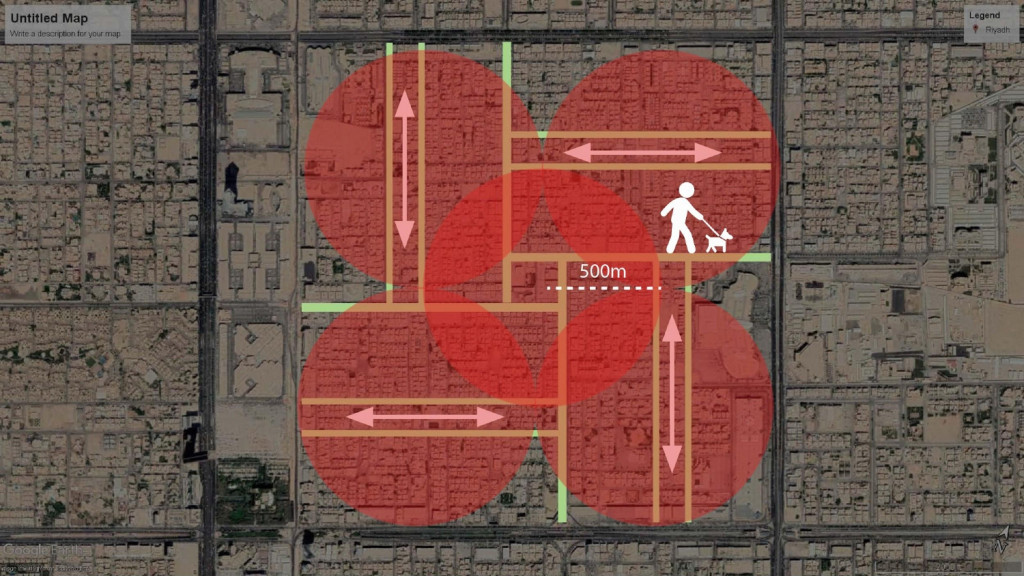 Proposed bike lane and bazaar like commercial strips are intended to increase walkability of pedestrians within neighborhood
Proposed bike lane and bazaar like commercial strips are intended to increase walkability of pedestrians within neighborhood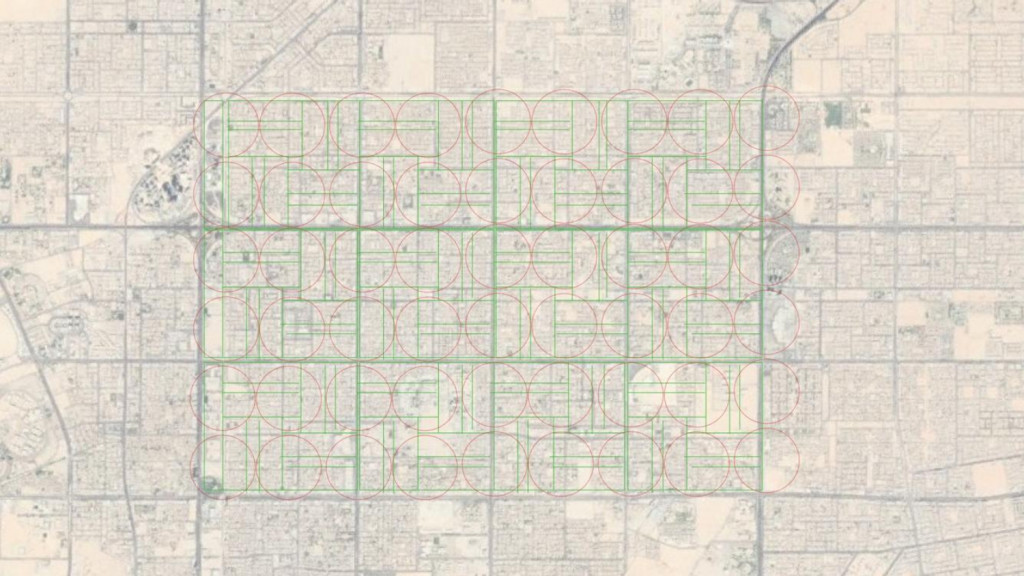 Interconnected walkable neighborhoods will elevate permeability and in turn will enhance pedestrian life across neighborhoods
Interconnected walkable neighborhoods will elevate permeability and in turn will enhance pedestrian life across neighborhoods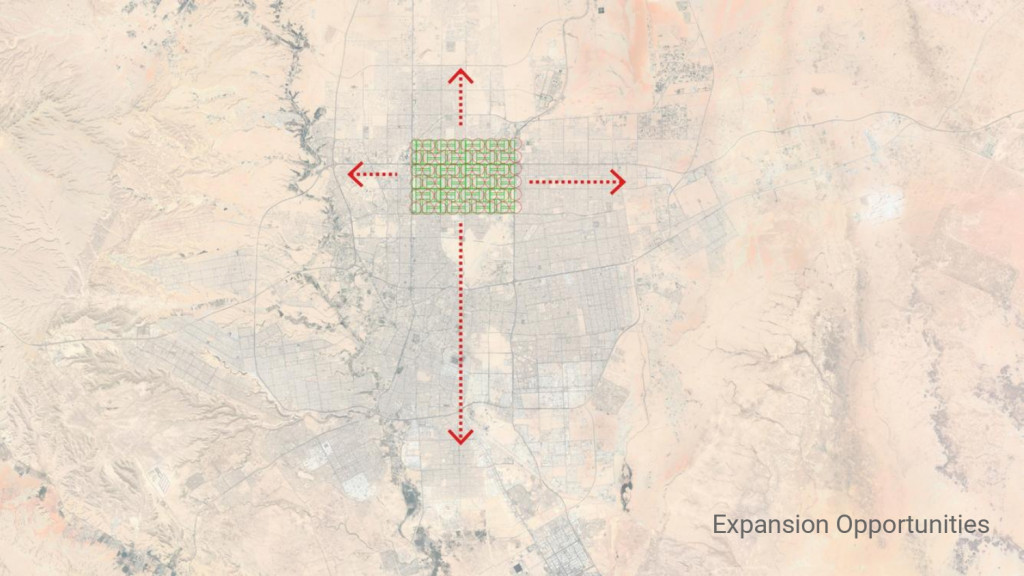 The scheme will extend beyond district and address mobility issues of the city
The scheme will extend beyond district and address mobility issues of the city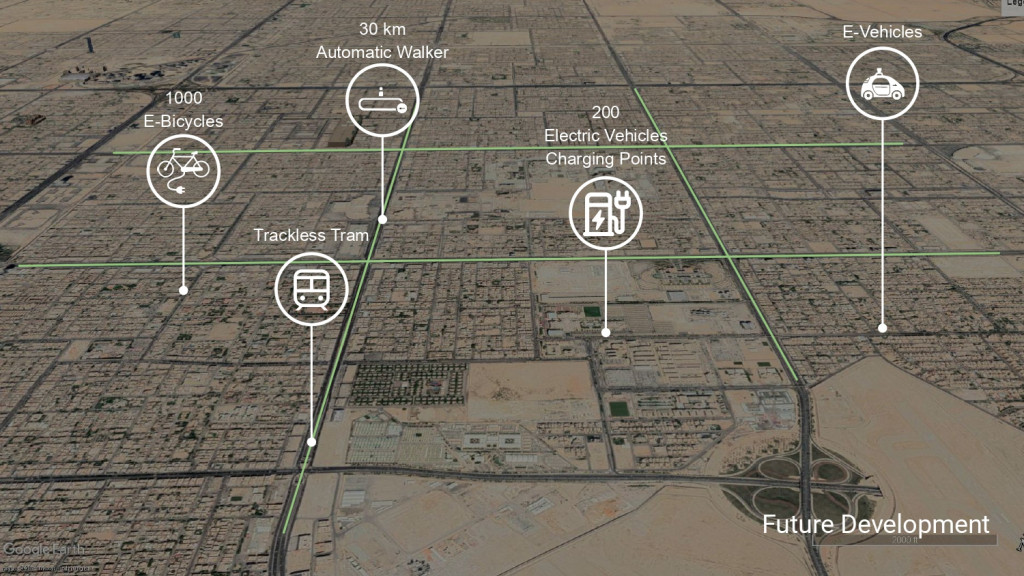
Highly efficient infrastructure built for resilient future will help ensuring energy security, create shift in mindset and transform urban street life of residents and visitors of Riyadh
References-
https://orca.cf.ac.uk/
https://en.wikipedia.org/wiki/Riyadh
Walkable Riyadh: Mindset shift is a project of IaaC, Institute for Advanced Architecture of Catalonia
developed at Master in City & Technology in (2019/2020) by:
Students: Andrew Saltzman, Aryo Dhaneswara, Rashid Gilfanov, Akshay Marsute
Faculties: PhD Gaia Sgaramella & Giuseppe Vallelonga
